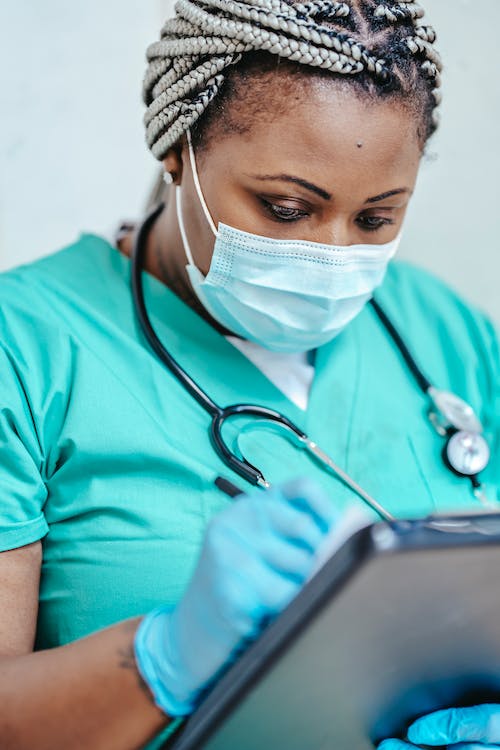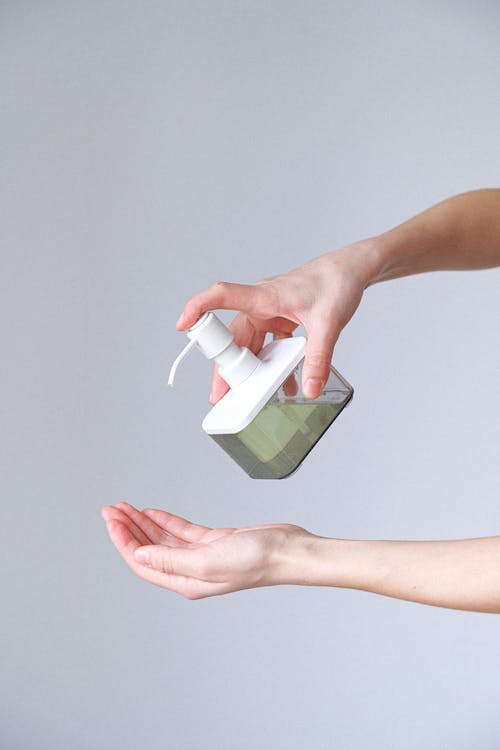Breast infection during pregnancy is called mastitis, puerperal mastitis is inflammation of the breast during pregnancy.
It's not a common phenomenon to see infections during pregnancy, but it is often observed in lactation.
Staphylococcus aureus and Streptococcus are common pathogens present in the nose and throat of newborn babies and may infect the breast through the damaged epithelial cells of the nipple-areola complex during breastfeeding.

What is breast infection during pregnancy
The breast is a typical female sexual physiologic organ influenced by steroid hormones from menarche until menopause.
So, Various diseases can be developed by the continuous action of estrogen and progesterone. Breast diseases are categorized mainly as benign and malignant.
It is very important to distinguish malignant tumors from breast diseases. However, it is very difficult to diagnose malignancy in pregnant and lactating women even though the same breast diseases occurred.
Therefore, we will review breast diseases such as breast carcinoma during pregnancy and lactation.
What are the symptoms of Breast infection during pregnancy
Mastitis usually affects one breast. The breast is red, painful, and swollen, and some women may also experience flu-like symptoms; such as high temperature (fever), aches, and chills.
If you're breastfeeding, they may ask you to demonstrate your technique, these symptoms can be collected in the:
- Breast enlargement on one side only
- Breast lump
- Breast pain
- Fever and flu-like symptoms, including nausea and vomiting
- Itching
- Nipple discharge (may contain pus)
- Swelling, tenderness, and warmth in breast tissue
- Skin redness, most often in a wedge shape
What are the causes of breast infection during pregnancy
Mastitis is inflammation (swelling) of the breast tissue, which an infection can cause.
Breast infections are caused by common bacteria (Staphylococcus aureus) found on normal skin.
Bacteria enter through a break or crack in the skin, usually on the nipple. The infection occurs in the fatty tissue of the breast and causes swelling.
This swelling pushes on milk ducts.

Home remedies for breast infection during pregnancy
- Continue nursing and use different feeding positions.
- Complete, frequent emptying of the affected breast.
- Warm compresses or warm showers.
- Increase fluid intake.
- Bed rest.
- Pain medication.
- Antibiotics if prescribed by your doctor.
- Drainage of any abscess that may form.

When do you see a doctor?
If you still have symptoms or concerns after 1 or 2 days of trying to heal at home, you should contact your doctor.
You may need antibiotics to treat the infection.
What is the treatment for breast infection during pregnancy
Breast infection during pregnancy is treated with antibiotics such as dicloxacillin, cephalexin, clindamycin, or sometimes erythromycin.
Pain and swelling are treated with cold compresses and pain relievers such as acetaminophen or nonsteroidal anti-inflammatory drugs (NSAIDs), including ibuprofen.
If you're allergic to penicillin, alternatives include erythromycin or clindamycin.
If the mastitis doesn’t improve within 48 to 72 hours, you may develop an abscess.
In these cases, treatment is more aggressive and strong. A surgeon must lance (by incision) and remove the abscess.
That may require a trip to the emergency or operating room.
You may also need antibiotics.
Depending on the severity of the infection, you may be given the antibiotic intravenously rather than orally.
Precautions for breast infection during pregnancy
There are some other tips for reducing breast infection during pregnancy:
- Anti-inflammatory foods
- Sardines
- Blueberries
- Turmeric
- Green tea
- Cherries

How can you protect yourself from breast infection during pregnancy
Avoiding exposure to infectious diseases during pregnancy:
Hygiene
Good hygiene practices; like frequent hand washing and avoiding contact with another person's saliva through shared foods, drinks, or utensils, can lessen your chances of becoming infected with potentially harmful illnesses.
Hand washing
Hand washing is an essential and very effective habit to prevent the spread of infection.
Hands should be cleaned and washed before and after touching raw foods and eating, after going to the bathroom, after changing a diaper or assisting a child with toileting, and after wiping a young child’s nose or drool.
Also after handling garbage or dirty laundry, after touching animals or pets, after handling children’s toys, and after gardening or touching dirt/soil.
Food precautions
The US Food and Drug Administration provides much free online information on Food Safety for Pregnant Women especially, products made from unpasteurized milk, raw cookie dough or cake batter, raw or undercooked meat or fish, or shellfish.
Unpasteurized juice or cider, cold deli meats, raw sprouts, and store-made meat/seafood salads contain bacteria, which may be harmful during pregnancy.
Insect borne illnesses
Pregnant women should take precautions that reduce the risk of acquiring mosquito-borne infections such as West Nile virus, Dengue virus, malaria, and Zika virus.
Sexually transmitted infections
If your partner may have more than one sexual partner, you should ask them to wear a condom to reduce the chance of getting a sexually transmitted infection, or you can use an internal (female) condom.
Travel
Avoiding traveling to high-risk locations is one way to minimize the chances of becoming infected with certain infectious diseases, like malaria, yellow fever, and Zika virus.
Vaccination
It is best to be up-to-date on the immunizations before getting pregnant.
Some immunizations, like influenza, pertussis, COVID-19, and hepatitis B, can and should be given during pregnancy.
If you are pregnant, you should protect yourself from breast infection during pregnancy and take the ideal vaccination.
Animal borne illnesses
People that are pregnant or planning pregnancy should avoid contact with all rodents (and rodent droppings), and should not change cat litter boxes (or should wear gloves and then wash their hands when changing the litter box).
Precautions about handling pets and laboratory animals should be discussed with a healthcare provider and followed.
Airborne infections
Some infections are transmitted when a person inhales droplets containing germs which an infected person coughs or sneezes into the air.
Minimizing close contact with an ill person and wearing a mask can reduce and prevent transmission.
What are the complications of breast infection during pregnancy
Breast infection during pregnancy may progress, and mastitis can cause the formation of a breast abscess.
Breast infection during pregnancy is very rare. If it appears, you should treat it immediately and not neglect it.
It is easy to treat it with some medication such as antibiotics such as dicloxacillin, cephalexin, clindamycin, or sometimes erythromycin.
There are some home remedies for breast infection during pregnancy such as eating anti-inflammatory-containing food.
Pregnant women should protect themselves from any breast infection during pregnancy so ,there are some steps to follow.
Read more about:


You must be logged in to post a comment.